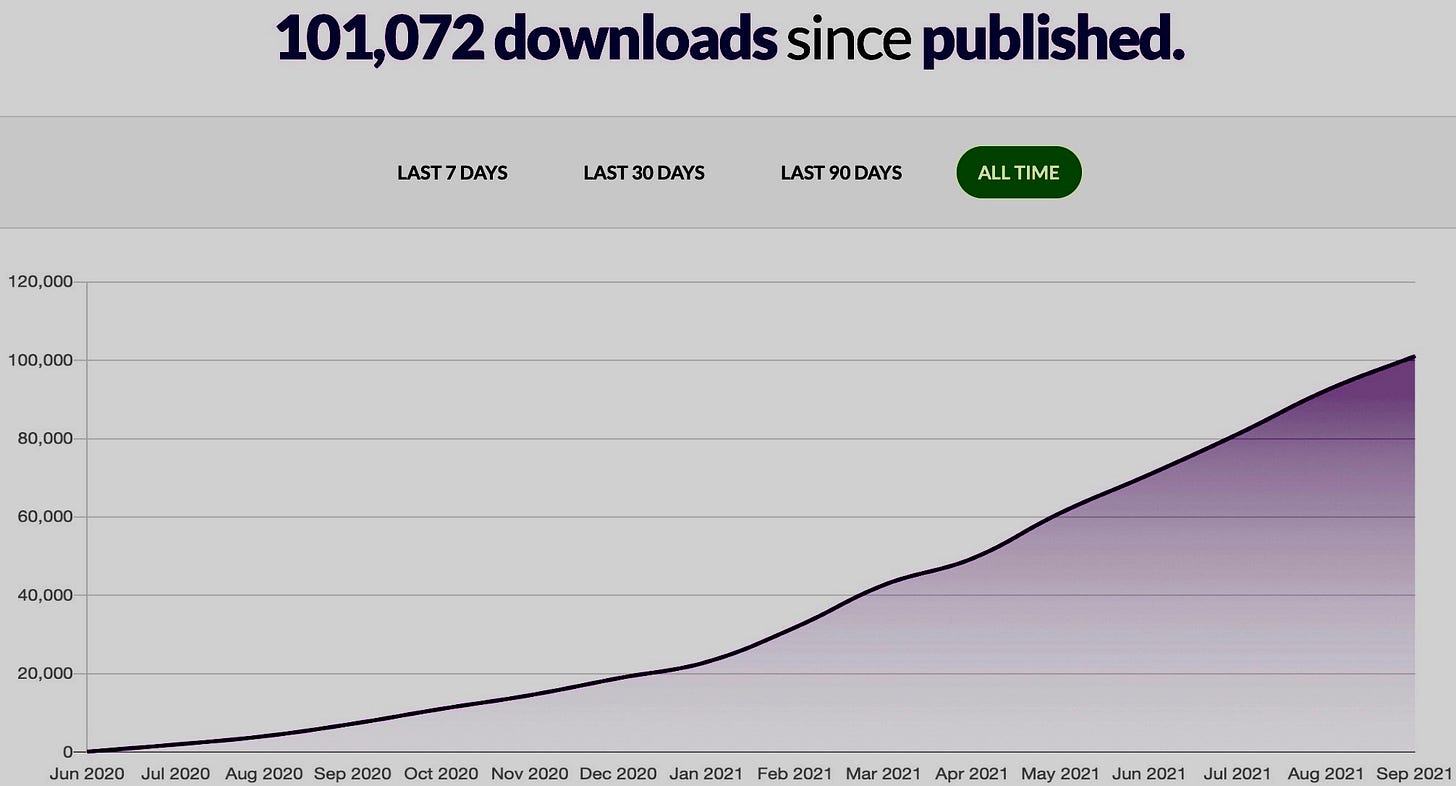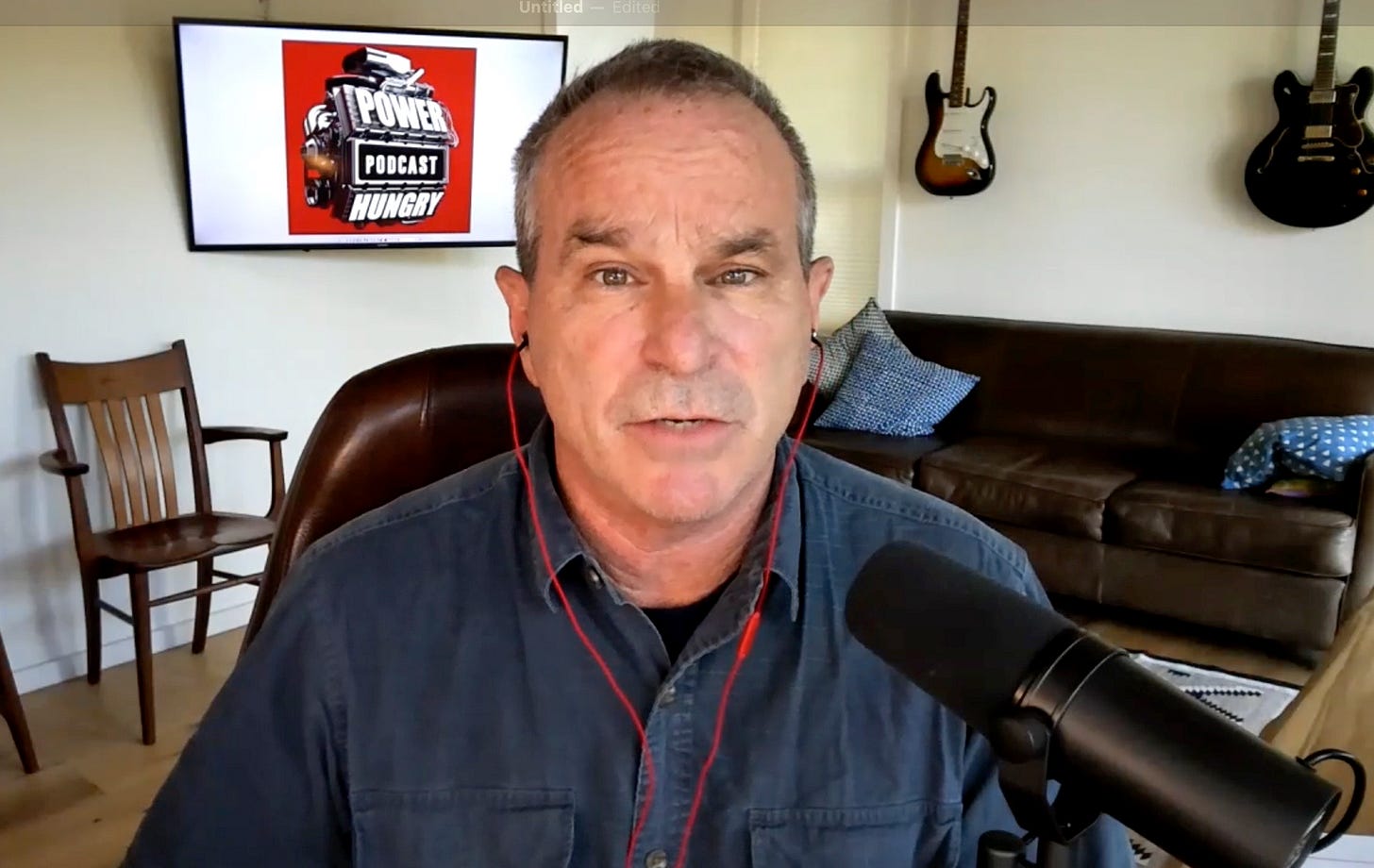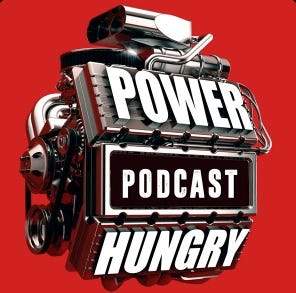100k downloads, Berman: Oil is the economy, Big Herons
Power Hungry Podcast hits 100,000 downloads, new Power Brief, Art Berman talks oil, and...Great Blue Herons
It’s easy to complain about travel. But the last two weeks have been a whirlwind and a joy. Last week, I was in New Orleans, Houma, and Wichita. This week, I was in Branson and Nashville. I will be on the road again for much of the next month reporting and lecturing. With all of the madness underway in Washington, there’s certainly plenty to discuss. Amid all the travel, I didn't have time to publish a column. I have several in the works, though, including one about the Democrats’ effort to ram through the Clean Electricity Performance Program, a measure that could be the most substantive change to the domestic electric grid since the passage of the Public Utility Holding Company Act of 1935. Despite its importance, the Democratic leadership and climate activists want to push the measure through Congress without any substantive debate. It’s an outrageous example of how policymaking in Washington has been degraded and how Congress now depends on the passage of massive omnibus bills that are stuffed to the gills with favors for special interests. I am still writing the article, but I did a Power Brief on it. Five items today:
101,000 downloads of the Power Hungry Podcast
A 3-minute Power Brief on the CEPP
Art Berman on the Power Hungry Podcast: “oil is the economy”
AfriNuke podcast
North America’s biggest heron
Photo note: The image above, of a Great Blue Heron in flight, was taken by Laurent Silvani in 2017 at Lac Noir, Saguenay−Lac-Saint-Jean, Quebec, Canada.

Look out, Joe Rogan!
This week, the Power Hungry Podcast hit a notable number: 100,000 downloads. Now, that’s not a big number when compared to Jordan Peterson (my favorite podcaster) or Joe Rogan, who get millions of downloads per episode. Nevertheless, I’m happy to see that the numbers of my podcast keep growing. Since launching the podcast in June 2020 with my colleague, Tyson Culver, we’ve released 71 episodes. We have had great guests including Scott Tinker, Meredith Angwin, Jim Cooper, Alex Epstein, Jennifer Hernandez, and many more. While the numbers are fun, what I have found over the past 15 months of doing the podcast is that it’s an intimate medium. In my experience, people who follow the podcast are enthusiastic about it. I say that not to flatter myself, but to make the point that people appreciate the chance to listen to conversations that aren't restricted to sound bites.
To be sure, the podcast has taken a significant amount of time and money. Tyson and I have worked through latency and sound issues. I’ve had to upgrade my Internet connection, my computer, my microphone, I’ve had to get more organized to make sure we have a high-quality episode ready to go every Tuesday. But it’s been worth it. I really enjoy doing the interviews and I’m pleased the podcast has found an audience. So, look out Joe Rogan! Yeah, you, and zillions of other Californians have moved to Austin. So what? I’ve lived here for 35 years. And I recently bought the same microphone you use -- a Shure SM7B – so I have no doubt that within a short time, the Power Hungry Podcast will go from 100,000 downloads to billions and billions and billions. Okay, maybe not billions, but 1 million would be good.
Seriously, thanks to y’all for listening. More great episodes are coming.

Power Brief on the wind and solar subsidies in the $3.5T reconciliation bill
This morning, I took a few minutes to record a Power Brief on the Clean Electricity Performance Program which is being included in the reconciliation bill now pending in the Senate. The measure will provide $150 billion in new subsidies which will largely go to wind and solar energy. Those subsidies, along with planned extensions of the PTC and ITC will have major impacts on the affordability, resilience, and reliability of the electric grid. This is my three-minute take.


Art Berman: "Oil is the economy"
About eight years ago, I shared the stage with Art Berman at an energy conference in Florida. I was impressed with Art’s knowledge of the industry and while I disagreed with his thesis at the time (if memory serves, he said the shale revolution was on its last legs) it was clear he knew the industry. So it was great to get him on the Power Hungry Podcast. Art is a petroleum geologist and the owner of Labyrinth Consulting Services. In his episode, he talks about why supply drives oil prices, why no country or company can be “energy dominant,” and how physics explains our dependence on oil. He also explained why the U.S. is a superpower in refined oil products and how LNG exports are contributing to the surge in domestic natural gas prices.
I liked what Art had to say about oil: “when I say oil is the economy all I mean by that is that oil is the primary source of work in the global economy.”
I also asked Art, who has a degree in Middle Eastern history about how he sees that region of the world today. He said Iran is the “ascendant power” in the Middle East, a fact that is largely the result of the Second Iraq War. “What George W. Bush did when he invaded Iraq is he completely upset the balance of power in the Middle East. And he created this tremendous opportunity for Iran to expand its sphere of influence into Iraq, now Iraq, for those listeners who don’t know...Iraq is the second-largest producer of crude oil in OPEC after Saudi Arabia...We can argue about the details, but probably Iraq has a longer future in oil than Saudi Arabia does. And so Iran is also an absolute powerhouse of production. You combine Iran and Iraq and you’ve got, you’ve got an oil power that is at least equal to Saudi Arabia, the United Arab Emirates, and Kuwait.”
Again, you can listen to the podcast by clicking here.

Media Hit
This week, I was on the AfriNuke Podcast, which is hosted by Jeremiah Mbazor. Jerry, as he calls himself, is based in Abuja, Nigeria. His podcast “brings you amazing views of peaceful nuclear technology through the African voice.” We talked about Nigeria’s never-ending electricity woes, why corruption is the enemy of light, the prospects for nuclear in Africa, energy poverty, and what will be needed to grow and speed the adoption of nuclear energy around the world. I liked Jerry’s questions. Among them was a query about my mentors. That question stumped me for a few seconds. You can listen to our chat here.

North America's Biggest Heron
On Monday, I took a walk to a marina on Table Rock Lake near Branson, Missouri. No one was around. Most of the boat stalls were empty and I only saw one or two boats pass by in the distance. The only inhabitant of the marina was a Great Blue Heron (Ardea herodias) that was standing at the far end of one of the wooden-slat-covered docks. The bird never let me get closer than about 30 meters. As soon as I stepped onto the same section of dock, it leaned forward, lumbered into the air, and casually flew away from the marina toward some trees on the rocky shore to my right.
To me, the Great Blue Heron looks like it could have stepped straight out of a dinosaur book and onto the nearest shoreline. It’s a fierce-looking bird. The drawing above, by John James Audubon, which was printed in 1834, makes it look rather friendly. You can learn more about the print and see a high-resolution image by clicking here. Despite Audubon’s flattering portrait, the Great Blue Heron is an animal designed to kill.
Wikipedia describes it as “a large wading bird in the heron family Ardeidae, common near the shores of open water and in wetlands over most of North America and Central America, as well as the Caribbean and the Galápagos Islands...The Great Blue Heron is the largest heron native to North America. Among all extant herons, it is surpassed in size only by the goliath heron (Ardea goliath) and the white-bellied heron (Ardea insignis). It exhibits a minor degree of sexual dimorphism; with males slightly larger than females, but otherwise the sexes are not easily outwardly distinguishable.”
Great Blue Herons are pretty common around Austin (and Branson). But I always like seeing them.
Have a great weekend.
Want to help?
1. Share this email to your friends and colleagues. Or have them email me so I can add them to my distribution list.
2. Subscribe to the Power Hungry Podcast.
3. Rent or buy Juice on iTunes or Amazon Prime.
4. Buy A Question of Power: Electricity and the Wealth of Nations and give it a positive review.
5. Follow me and Juice on Twitter.
6. Need a speaker for your conference, class, or webinar? Ping me!
Thanks!
Watch Juice for free on Roku!
If you haven't seen our documentary yet, here's a reminder: you can watch Juice: How Electricity Explains the World, on Roku, for free. Just click this link. If your friends haven't seen it, send them a link. Or if you have a prime membership, you can watch it on Amazon Prime.



